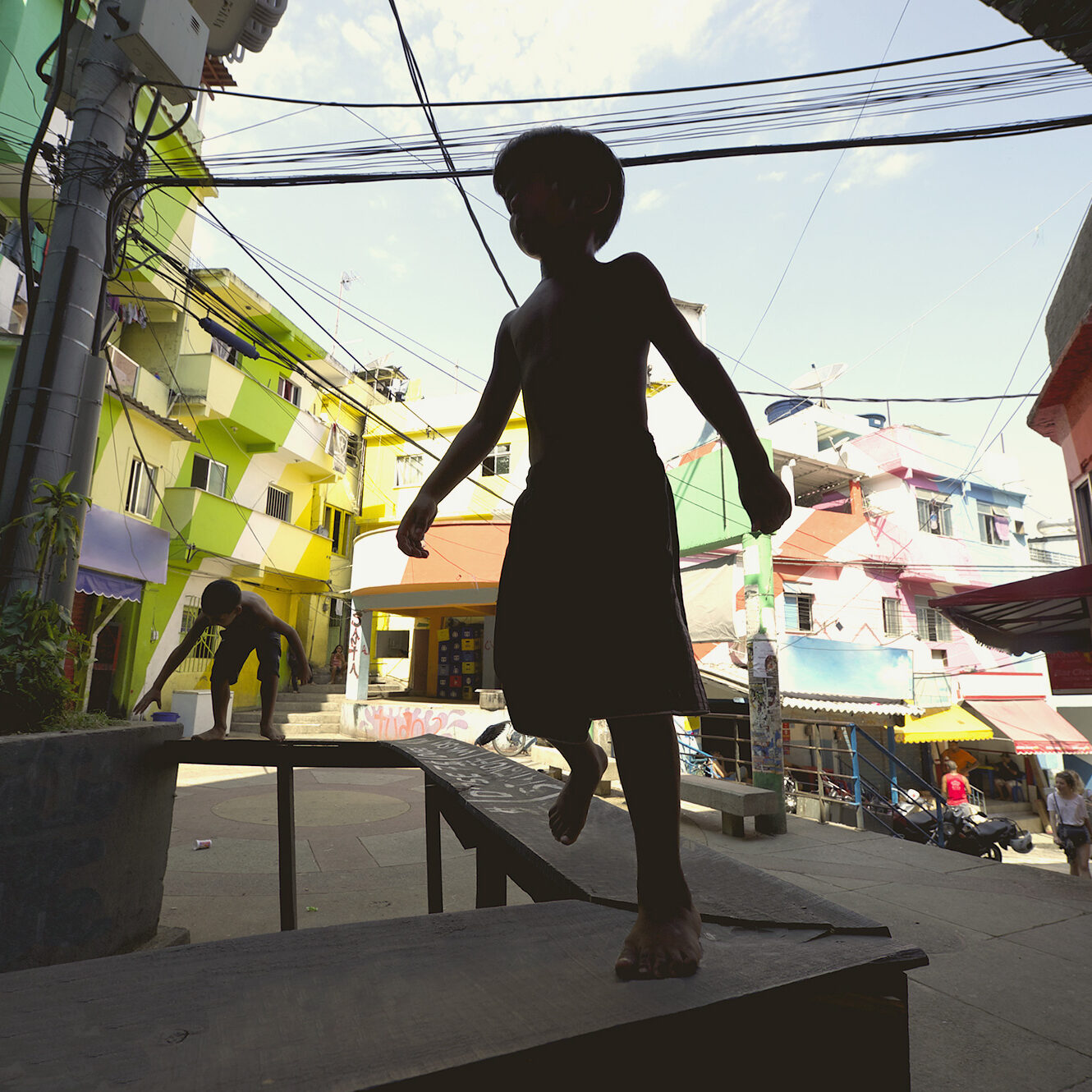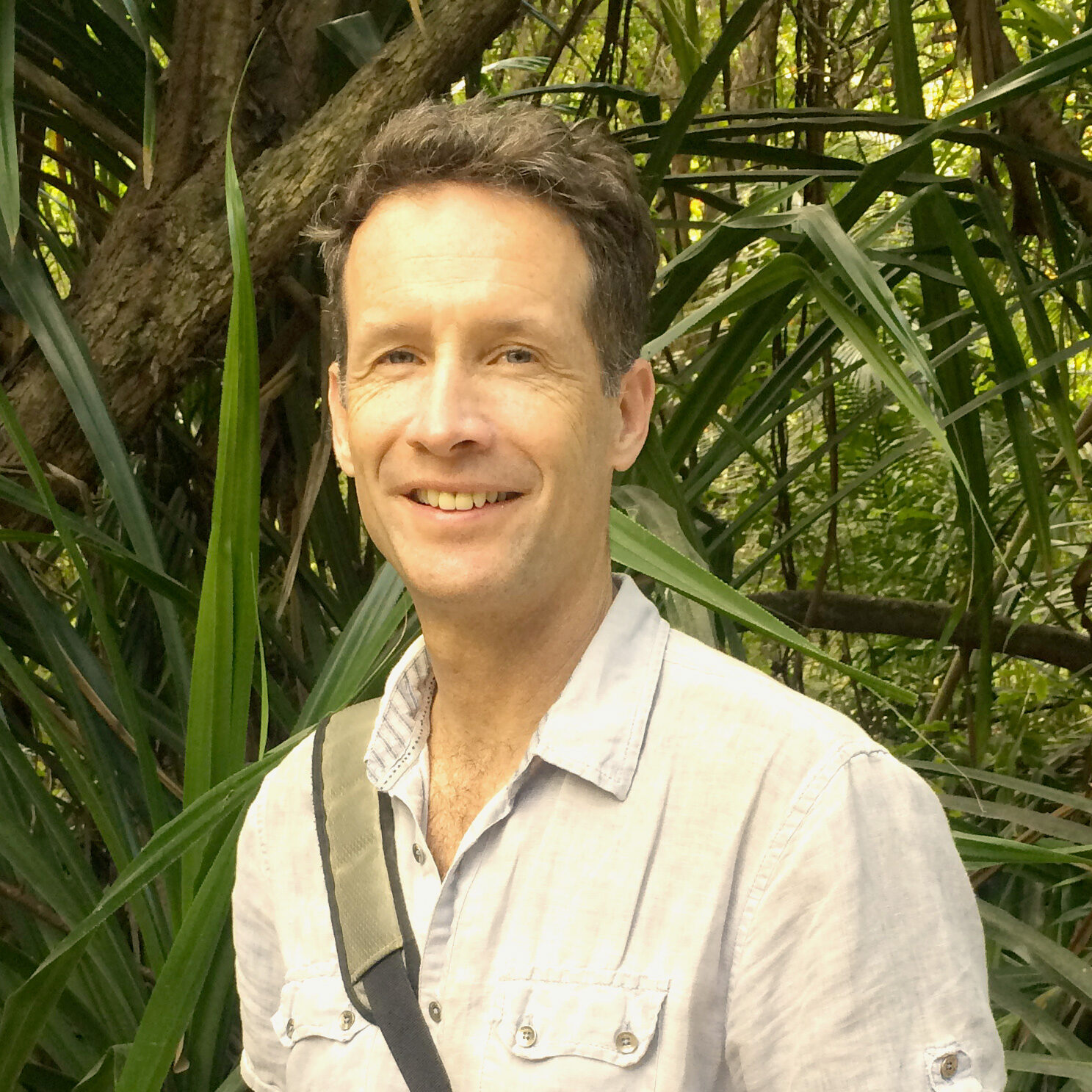An Alumnus’ Commitment to the Community in Rio’s Favelas
Few people might describe spending a year in the favelas of Rio de Janeiro—slums for millions of urban poor, with few public services—as a “phenomenal experience.” But that’s precisely what it was to Zak Paster, who studied government at the Extension School, graduating with a Master of Liberal Arts in 2014.
Paster’s journey to Rio began in Argentina, where he worked for Zurich Financial Services for two years after completing his bachelor’s degree at the University of Oregon in 2000.
During his time in Argentina, Paster witnessed the collapse of the country’s economy. The experience made him rethink returning to the states.
“I didn’t want to come back and do a 9 to 5 job,” he says. “I’d never been to Brazil and was very intrigued by the diversity, wealth, and poverty of Rio de Janeiro. In many cities, those qualities are separated, but in Rio they’re intertwined.”
After learning Portuguese on his own, Paster accepted an internship in the northern part of Rio in 2003, heading to an area with few public services.
Departing Argentina with a “Copacabana image of Rio,” Paster experienced a profound shock upon his arrival. The school in which he was placed had no infrastructure for basic services, such as recruiting or management. He began working with the school’s directors to help develop and establish those services. And yet, Paster felt driven to do more.
“I started doing volunteer work with numerous nongovernmental organizations (NGOs) in the favelas,” he says. “I was fascinated with how NGOs provided social services to impoverished communities throughout Rio. The director at the school asked me if I would be interested in starting an NGO, and that was when the challenge began.”
Facing the Challenge
After developing a strategic plan, designing a website, and partnering others to navigate the complex legal issues in creating the NGO, Paster established Community in Action.
The organization’s mission is twofold. First, it’s committed to delivering educational and vocational services in the slums for residents of all ages, including English classes, computer training, handicrafts, and tutoring services. Second, it aims to welcome volunteers and educators from the favela community. In fact, all classes at the NGO were led by favela residents, with many holding administrative positions at the NGO as well.
“The idea was to give people in the favela the opportunity to become administrators, teachers, and leaders,” he says. “So many people in the slums have a low-level job, or they’re unemployed. They’re used to receiving orders from others. Enabling them to take on leadership roles in the NGO was very important to us, and the outcomes were monumental: everyone embraced this operating model.”
The organization has seen hundreds of volunteers from the favelas over the years, teaching everything from gardening to education to art to vocational courses.
“They showed up every week,” Paster says. “It was a local, organic growth that we saw year after year, ultimately strengthening our local network.”
Going Global
In addition to empowering the local community, Community in Action also stepped up on a global scale.
“Over time, we realized that there were hundreds of people who wanted to come to Brazil and volunteer in the favela,” Paster says.
Paster and his wife, Luiza, a native of Rio de Janeiro who helped launch Community in Action, adjusted the NGO model in 2006 to include a for-profit concept in 2006. By establishing a small fee for global volunteers, the new business model allowed volunteers from around the world to help in the community while also sustaining the NGO.
Today, the organization works with 10 local schools, as well as multiple NGOs and public entities, reaching many demographics of the favela communities and changing lives.
“The global volunteers helped expand our services in the region through their social entrepreneurship support,” Paster says. “Volunteers and locals have used the Community in Action platform to implement their own social outreach programs. We’re now able to connect global volunteers with these entities to provide diverse outreach programs they want to implement, and we’re reaching thousands of people through our services.”
A New Way of Thinking
My studies at the Extension School were different from all the classes I had taken previously as an undergrad and MBA student. Social science courses were refreshing and challenged me intellectually …
In 2006, Paster returned to the states. After completing an MBA program at the University of North Carolina at Chapel Hill, he joined Booz Allen Hamilton in DC as an associate, working on strategy and implementation programs for US government clients.
Yet again, Paster felt he wanted to do more—and that feeling led him to Harvard Extension School.
“I wanted to understand the theoretical side of government,” Paster said. “It was the concept of combining theory with practice. I had diverse practical experiences from my work. But my studies at the Extension School were different from all the classes I had taken previously as an undergrad and MBA student. Social science courses were refreshing and challenged me intellectually in a different way.”
Beginning in 2009, Paster took just one class a semester. This approach allowed him to take “deep dives” into the subject, and become intensively engaged – he explored a wide range of classes, including government, international political economy, education, and religion.
“The diversity of classes allowed me to focus on the origin of policies and how they’re implemented, macroeconomic impacts of geopolitical relations, and world religions from the east to west,” he says. “I was also able to bring in both my professional experience and my experience with NGOs in South America. My graduate thesis was even a genesis of the work I did in Brazil, which was an awesome culmination.”
Because of his liberal arts studies at the Extension school, Paster now has a foundation that helps him to think differently, considering hypotheses “in a way I’d never considered before,” he said.
“The Extension School really allows you to immerse yourself in a class, absorb everything, and think deeply about the topics being discussed,” he says. “I feel like this degree is something that will help me pursue my next step, whatever that will be.”
Written by Jennifer Doody

